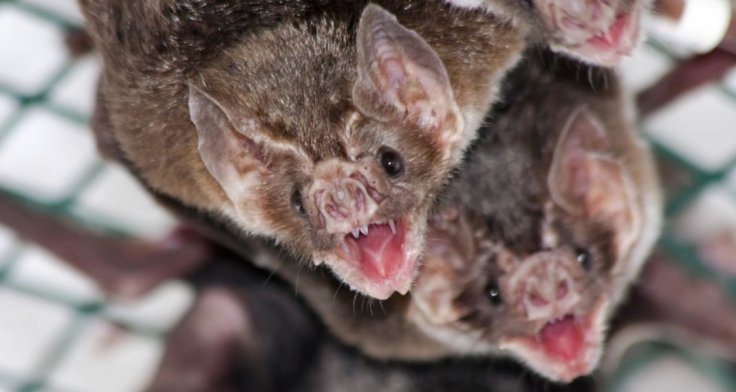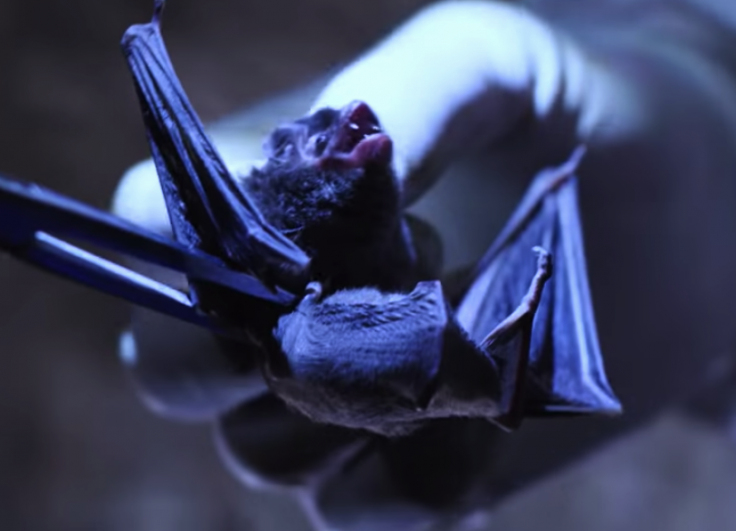As the health officials in Australia are on high alert after highly transmissible new Coronavirus variants made it into the country, three bats have tested positive for Australian lyssavirus in Queensland in recent weeks.
After the detection of "Australian Bat Lyssavirus" that can cause serious illness in humans, the health officials have renewed their warnings and have asked not to handle any injured animals.
The most recent case of the virus was identified in a bat at Anstead Bushland Reserve, in Brisbane's south-west. A spokesperson for Queensland Health's Metro-North Health Unit said, "We have been in contact with those people who reported the bat when it was found and those who cared for it."
The virus infection in humans causes a serious illness that results in paralysis, delirium, convulsions and death, according to the Australian health authority. The infection can be transmitted if a person is bitten or scratched by an infected bat.

What are Lyssaviruses?
Lyssaviruses are negative-sense RNA viruses and the causative agents of the ancient zoonosis rabies. According to experts, lyssaviruses cause acute progressive encephalitis or rabies in mammals, being transmitted between susceptible individuals directly by bites, scratches or contamination of mucous membranes with infected saliva, without the participation of arthropod vectors.
Australian bat lyssavirus or ABLV can be transmitted from bats to humans. It was first identified in 1996. ABLV is one of twelve types of lyssaviruses. Since blood tests have shown the previous infection in many bat species in Australia, it can be assumed that several bats could carry the virus.
After the recently detected cases, the health officials advised people not to handle bats, even if they appear dead. "It is very important to provide urgent treatment if anyone has had a scratch or bite from a bat to prevent a lethal disease," a Queensland Health spokesperson said.
The Royal Society for the Prevention of Cruelty to Animals (RSPCA) in Australia took in the Anstead bat just three days after another bat from East Ipswich tested positive for the virus. RSPCA veterinarian Meaghan Barrow said, "At RSPCA we hardly ever get a positive result ... the fact that we have had two come in so close together is a bit of a concern. It's something we're looking into ... and some of the other bat care and rescue groups."
Do Not Touch Them

Dr. Barrow said if anyone encounters an injured bat, it would be ideal not to touch them at all. "Obviously, any sick bat could have a risk of having lyssavirus," she added.
However, Jennifer Sullivan from Bat Conservation and Rescue Queensland said that despite the increasing number of cases, they were not concerning at the moment. "We do get the occasional flare-up every now and then. There is no risk of contracting the disease if you don't touch the bat."
When the Coronavirus pandemic hit the world, many people demonized the nocturnal animal. In countries like India, people started to kill bats as they thought that they could infect more people with novel Coronavirus. Many scientists then claimed that it is just one of the bat species which is responsible for the SARS-CoV-2 infection.
Now, when lyssavirus is detected in some of the Australian bats, Sullivan said, "Bats have a bit of a stigma that comes across from being a night-time animal ... but in reality, they are vital to our ecosystem in Australia."
She also said that bats are a keystone species and without them, the ecosystem will crash. "I don't think lyssavirus is one of the things we should be concerned about ... they're far more at risk from habitat destruction," she added.









